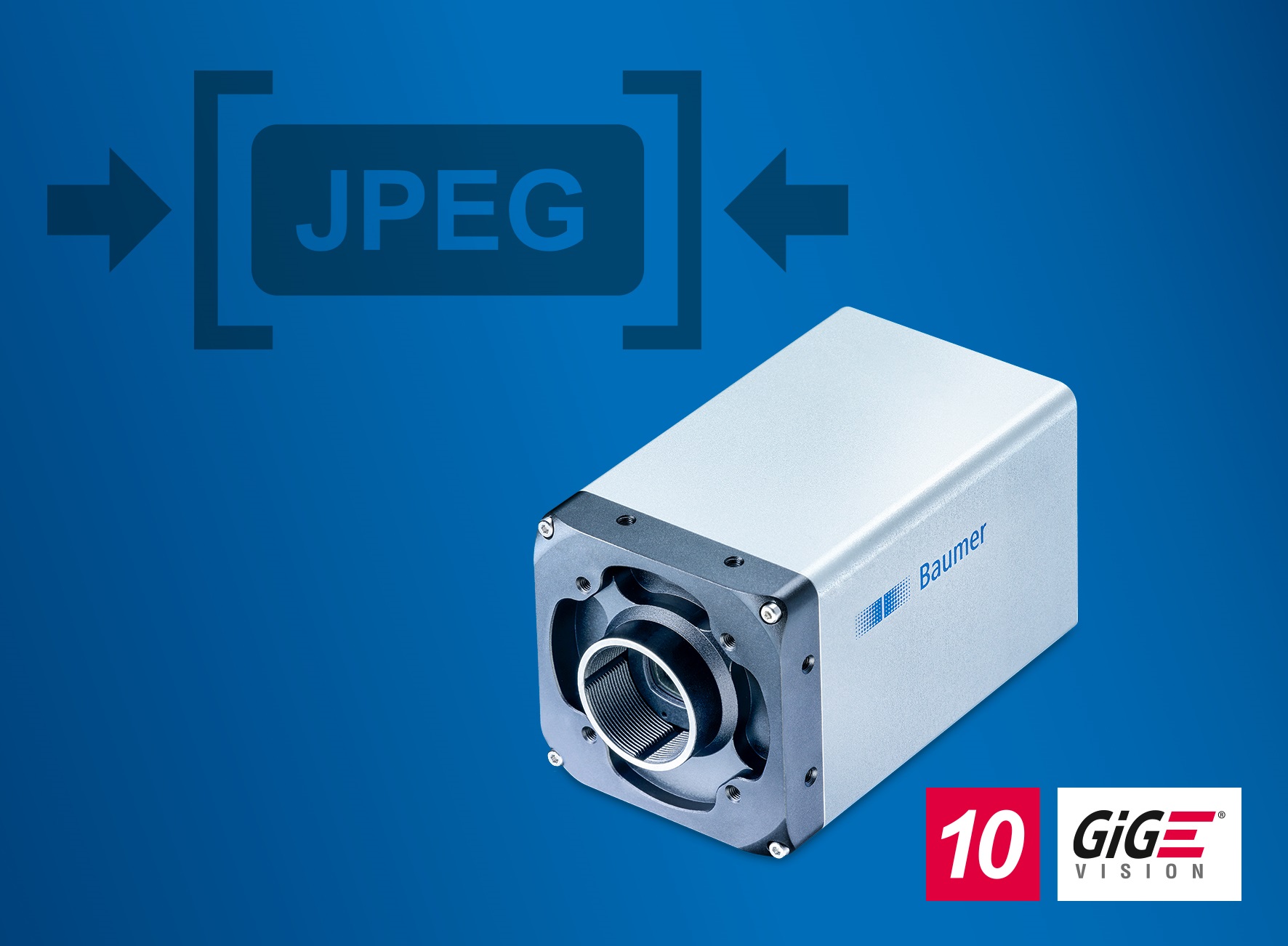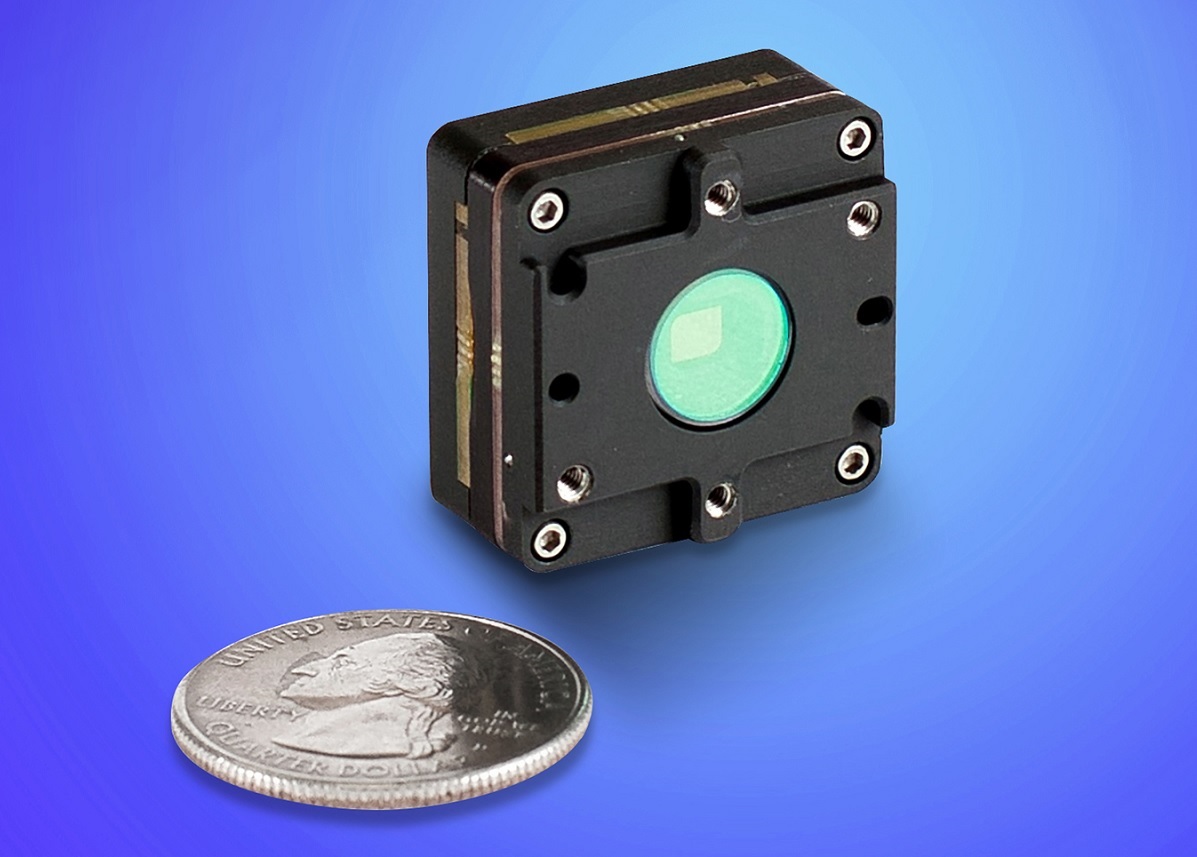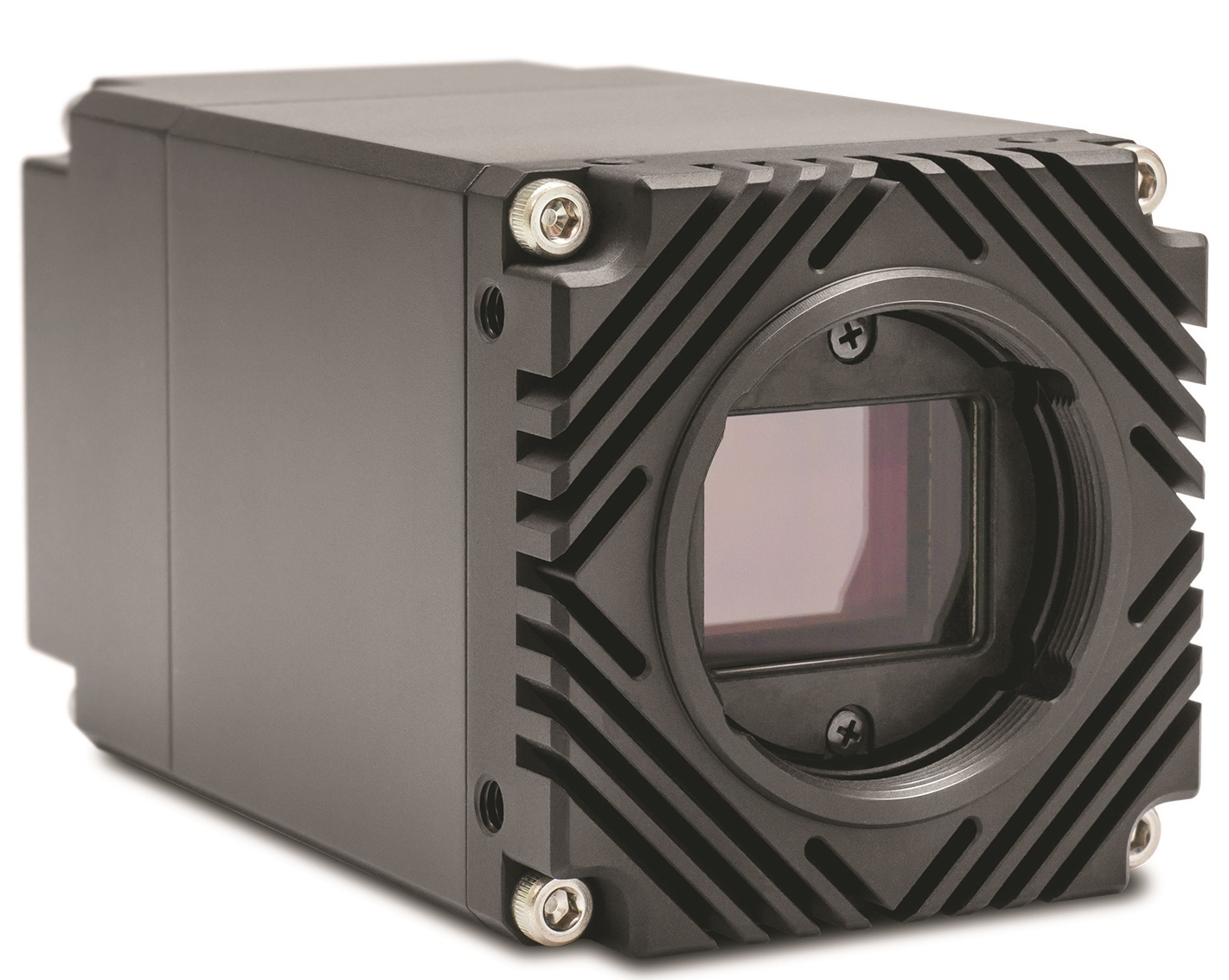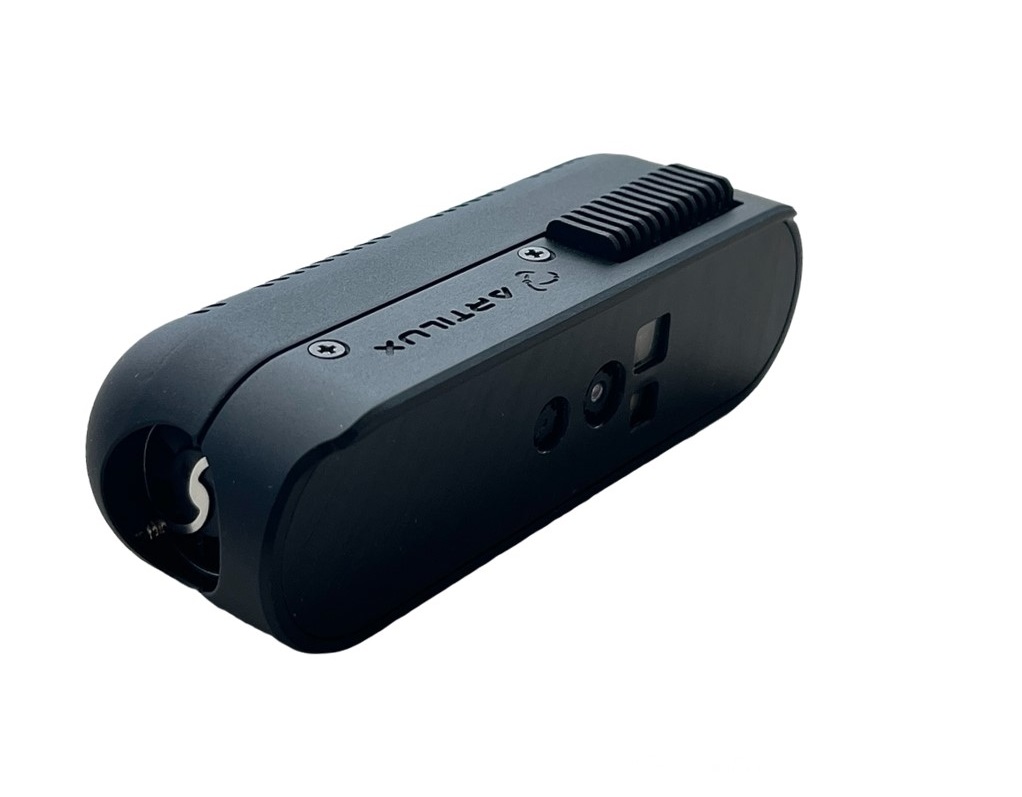Sep 21, 2020
The new LXT cameras with integrated JPEG image compression allow image capture with very high resolution and speed via the widely available and easy-to-use GigE interface. This means, for example, that 500 frames/s with full HD or more than 1500 frames/s with SVGA can be used without any time limitations. As a result, the bandwidth, CPU load, and required storage capacity are reduced. This simplifies the system design and lowers integration costs. The cameras are optimally suited for capturing long image sequences in which original images can be compressed, transmitted, and stored, e.g., inspection of pantographs in railway, control of continuous material in paper production, analysis of motion sequences in the sports industry, or process monitoring. The first models will become available this quarter.
Thanks to the configurable JPEG compression rate, the image quality can be individually adjusted to the application. Data reduction in the range of 1:10 to 1:20 is possible. The image compression takes place directly in the FPGA of the camera, which relieves the PC-based image processing system of computing-intensive image compression algorithms. This allows several cameras to be used simultaneously from one PC via a switch. Compared to the transfer and storage of full images, applications can benefit from reduced storage capacity requirements plus the associated hardware savings.
The five new models with resolutions from 0.5 MP to 9 MP feature the latest Sony Pregius CMOS sensors of the 2nd and 3rd generation coupled with very high sensitivity with a pixel size of up to 9 µm. Short exposure times of up to 1 µs are especially advantageous for capturing very fast movements. The exceptionally high image quality with low noise facilitates reliable image evaluation, even under adverse circumstances, e.g., motion analysis for indoor sports with reduced illumination intensity.
The 10 GigE models of the LX series are the ideal choice for demanding inspection tasks that place strict demands on high-definition image quality at high throughput. Their robust industrial design withstands mechanical loads and ensures reliable image processing. The cameras are equipped with four opto-decoupled power outputs with pulse width modulation and an output performance of up to 120 W (max. 48 V / 2.5 A) for the direct control of illumination without an external controller. Thanks to the optional patented tube system, the cameras offer the protection class IP 65 and IP 67, entirely without an external housing. Equipped with Precision Time Protocol (PTP) according to the IEEE 1588 standard, the LXT models additionally support precise time synchronization in Ethernet networks. The flexible activation of objectives with liquid lenses allows simple adjustment to varying working distances. The integrated HDR function facilitates stable image capture even in difficult illumination situations, such as outdoors.
Learn more at: www.baumer.com/cameras/LXT

High-speed GigE cameras with integrated JPEG image compression save bandwidth, CPU load, and storage capacity

The high-speed LXT cameras with integrated JPEG image compression save bandwidth, CPU load, and storage capacity for a simpler and more cost-effective system design.













